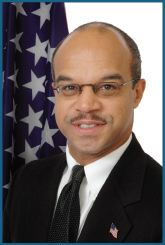
A hearing was held Wednesday in the Kansas Legislature on a bill that would require a vacancy in a local elective office to be filled within a timely manner.
State Sen. David Haley, D-4th Dist., the sponsor of Senate Bill 10, said that it would require a vacancy for any elective office to be filled within 30 days by the existing remaining members of the commission, or by a special election within 45 days.
The bill stems from the Unified Government’s not filling a vacant commission seat for the 1st District, at large. The seat went unfilled for two years as the UG Commission was unable to reach six votes in favor of any one candidate. It now is coming up for election this spring at the regular UG elections. UG officials last year said that the UG charter did not allow for any other method to fill the seat except the vote by the commission.
In a statement to the committee, Sen. Haley said that at the federal and state levels, if a legislator or member of Congress resigns or is incapacitated while in office, there are clear instructions provided in the constitutions for swift procedures for replacements. He asked why should a voting citizen of a county or city be less represented at the local level should a vacancy occur and continue unfilled? He added that each voter deserves a full-term or full-termed representative.
“Shouldn’t every elected term be represented in full no matter whether at the federal, state or local level?” he asked. “This should be our democracy.”
Sen. Haley said the UG’s lobbyist, Mike Taylor, opposed the bill at the hearing on Wednesday, but the committee did not rule the bill out.
According to a legislative fiscal report on the bill, associations of counties and cities have said that it may increase the cost to cities or counties because it calls for a special election if a commission cannot fill the vacancy.
Sen. Haley said the bill is currently in the Ethics and Elections Committee, which is considering it. If it passes out of the committee, then it would go to the Senate floor for debate.
Sen. Haley said as far as his research had determined, Wyandotte County’s vacancy has been 14 to 15 months longer than any other elected office vacancy in Kansas.
“It’s an embarrassment, and beyond that, an outrage to me,” he said.
Several persons previously said they were of the opinion that people from the north side of the county, which is the UG Commission 1st District, at-large, had unequal representation when the seat was unfilled for such a long time.
Sen. Haley said the UG stated its position that it was a local control issue and that no one wanted Topeka telling local governments what to do, and that the situation with a vacancy probably would not happen again.
Also, the UG’s position was that it would have cost $150,000 to hold a county-wide special election, and it couldn’t afford it.
The opinion also was expressed by the UG that residents were still represented by their other district representatives.
Sen. Haley said the bill did not mandate how the successor would be named, and the election would only be triggered when the county or municipality failed to act — so it would not be costly if the governing body appointed a successor.
Sen. Haley said the city of Shawnee, Kan., was interested in exempting those other cities that already have rules to fill vacancies within a certain number of days. Shawnee’s is 60 days.
Sen. Haley said that was a good point, and he was thinking of adding that amendment to exempt local governments that already have that rule.
